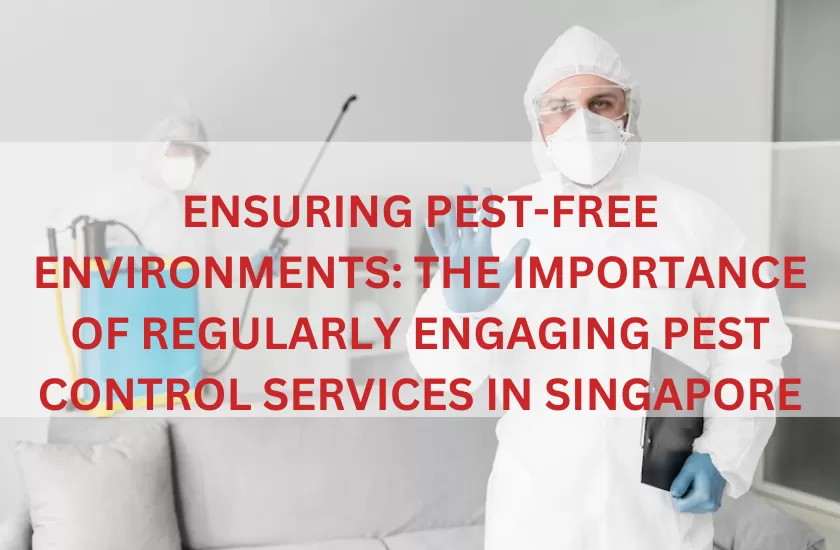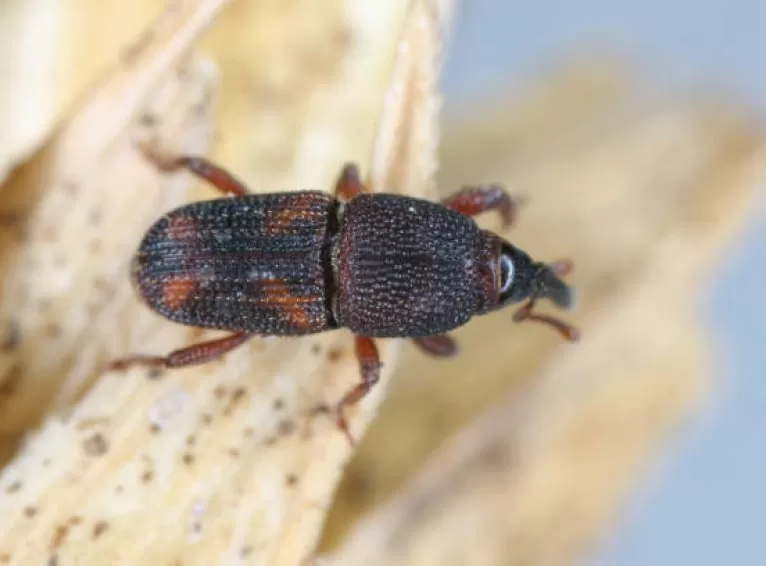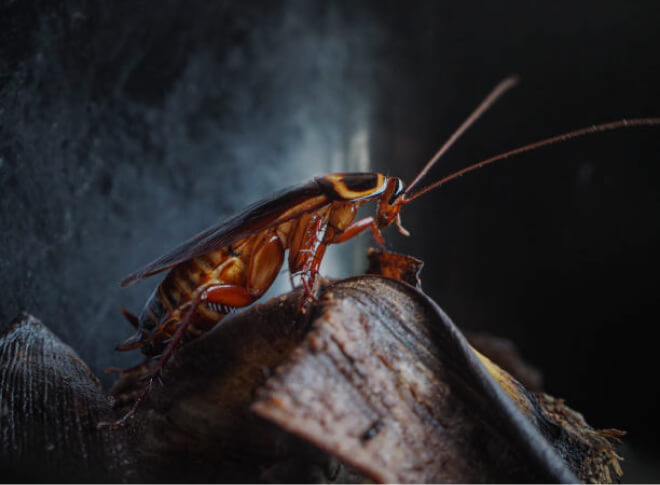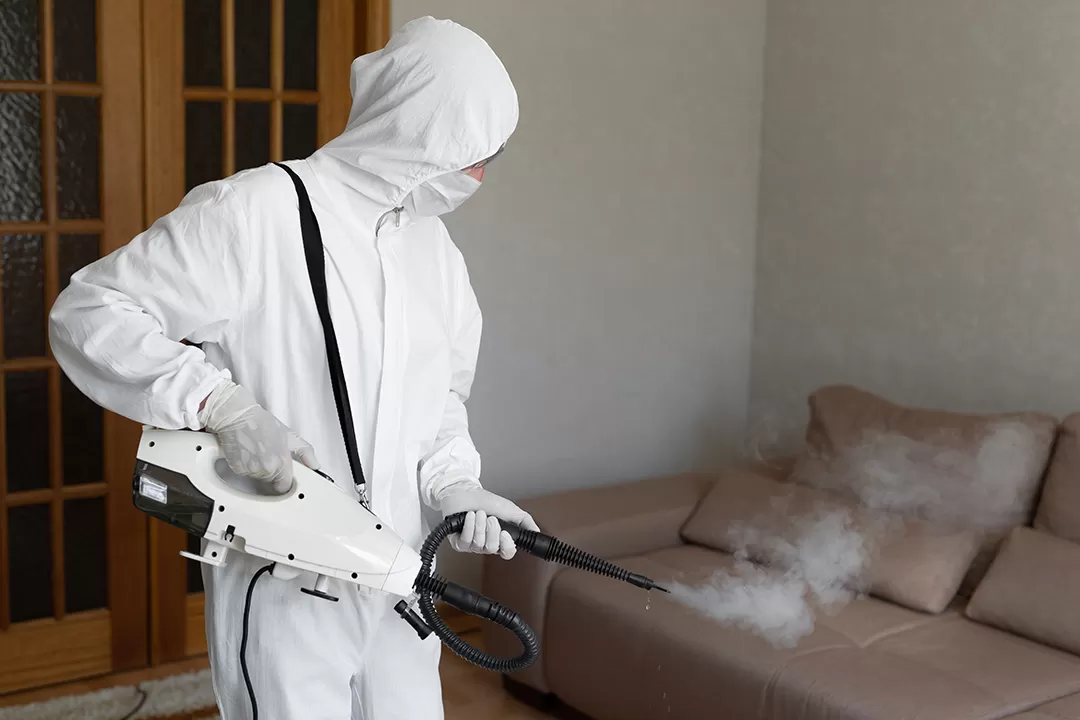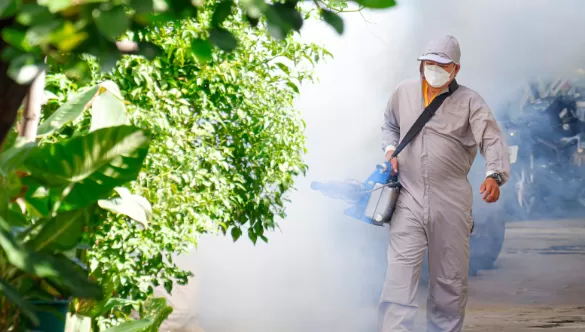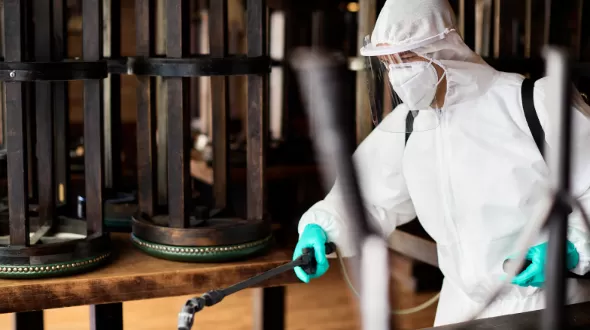Pests, the unwelcome guests that invade our homes, businesses, and public spaces, pose significant threats to our health, property, and overall well-being. From disease transmission to structural damage, the consequences of pest infestations can be severe if left unchecked. Engaging in regular pest control services is not just a matter of convenience; it’s a fundamental step towards ensuring a safe, clean, and pest-free environment for ourselves and future generations. In this comprehensive article, we’ll delve deep into the importance of regular pest control services, exploring the myriad benefits they offer and why they should be an integral part of our maintenance routine.
Understanding the Scope of the Pest Problem
Pests come in various forms, ranging from rodents and insects to birds and other wildlife. Each type of pest presents its own set of challenges and potential risks. Rats can spread diseases like leptospirosis and salmonellosis, contaminate food supplies, and cause structural damage by gnawing through wires and insulation. Insects like cockroaches, ants, and bed bugs are notorious for triggering allergies and asthma, contaminating food, and transmitting diseases. Meanwhile, wildlife pests like raccoons and squirrels can wreak havoc on homes and businesses, damaging property and posing health risks.
The Importance of Regular
- Preventive Measures: Regular pest control services focus on prevention rather than reaction. By identifying and addressing potential pest entry points, eliminating food and water sources, and implementing proactive pest management strategies, property owners can significantly reduce the risk of infestations before they occur.
- Health and Safety: Pests are not just a nuisance; they can pose serious health risks to humans and pets. Diseases transmitted by pests can range from mild illnesses to life-threatening conditions. Regular pest control services help to minimise these health risks by targeting pests at all stages of their life cycle, from eggs to adults, and by employing safe and effective pest management techniques.
- Property Preservation: Pests can cause extensive damage to property and structures, leading to costly repairs and renovations. Rodents can chew through electrical wiring, causing fires. Termites can cause a lot of damage like destroying wooden structures and compromising the integrity of buildings. By engaging in regular pest control services, property owners can protect their investments and ensure the longevity of their properties.
- Environmental Considerations: While pest control is essential for maintaining a clean and pest-free environment, it’s also crucial to consider the environmental impact of pest control methods. Integrated Pest Management (IPM) approaches prioritise the use of non-chemical methods, such as trapping, sealing entry points, and removing food sources, to control pests. These methods are environmentally friendly and help to minimize the use of pesticides, reducing the risk of harm to humans, pets, and the environment.
- Regulatory Compliance: In many jurisdictions, property owners are required by law to maintain a pest-free environment. Failure to comply with pest control regulations can result in fines, legal action, and reputational damage. Engaging in regular pest control services ensures that properties remain in compliance with local regulations and standards, avoiding potential penalties and liabilities.
The Role of Professional
The Role of Professional Pest Control Services is pivotal in managing pest infestations effectively and safeguarding properties from the damages and risks associated with pests. While DIY methods may seem appealing, professional pest control services offer several distinct advantages that ensure comprehensive and long-lasting pest management solutions:
- Expertise and Experience: Pest control professionals undergo extensive training and have years of experience in dealing with various pest infestations. Their expertise enables them to accurately identify the type of pests present, assess the extent of the infestation, and employ the most effective strategies for elimination.
- Customised Solutions: Recognizing that every pest infestation is unique, professional pest control services provide tailored solutions to address specific pest issues. They conduct thorough inspections of the property to understand the underlying causes of the infestation and develop customised treatment plans that target the pests effectively while minimising disruption to the property and its occupants.
- Safety and Compliance: Professional pest control services prioritise safety for both humans and the environment. They use environmentally friendly pest control methods and products that are approved by regulatory authorities. By adhering to safety protocols and industry regulations, they ensure that the pest control treatments are conducted safely and effectively, without posing any health risks to residents, pets, or the environment.
- Long-Term Protection: Beyond just eliminating existing pests, professional pest control services focus on long-term prevention. They implement preventive measures such as sealing entry points, removing attractants, and implementing habitat modifications to discourage pests from returning. Additionally, regular pest control maintenance plans ensure ongoing monitoring and proactive intervention to detect and address potential pest issues before they escalate into full-blown infestations, providing continued protection for the property.
Implementing an Effective Strategy
To achieve and maintain a clean, pest-free environment, property owners should consider the following steps:
- Assessment and Inspection: Conduct a thorough assessment and inspection of the property to identify potential pest entry points, breeding grounds, and conducive conditions.
- Preventive Measures: Implement preventive measures such as sealing cracks and gaps, repairing leaky pipes, and maintaining proper sanitation and hygiene practices to eliminate food and water sources for pests.
- Regular Monitoring: Monitor the property regularly for signs of pest activity, such as droppings, gnaw marks, and unusual odours. Early detection of pests allows for prompt intervention and prevents infestations from spreading.
- Professional Pest Control Services: Engage professional pest control services to develop and implement a comprehensive pest management plan tailored to the specific needs of the property. Regular treatments and ongoing monitoring are essential for effective pest control and long-term protection.
- Educational Outreach: Educate occupants and stakeholders about the importance of pest control and the role they play in preventing pest infestations. Encourage them to report any pest sightings or concerns promptly to facilitate timely intervention.
Conclusion: Investing in a Pest-Free Future
In conclusion, regular pest control services are essential for achieving and maintaining a clean, pest-free environment and protecting health, property, and well-being. By implementing preventive measures, engaging professional pest control services, and adopting environmentally friendly pest management practices, property owners can effectively control pests and minimize their impact on human health and the environment. Investing in regular pest control services is not just a prudent choice; it’s a commitment to ensuring a safer, healthier future for ourselves and future generations. Together, we can create a world where pests are no longer a threat, and our environments are clean, healthy, and thriving.

